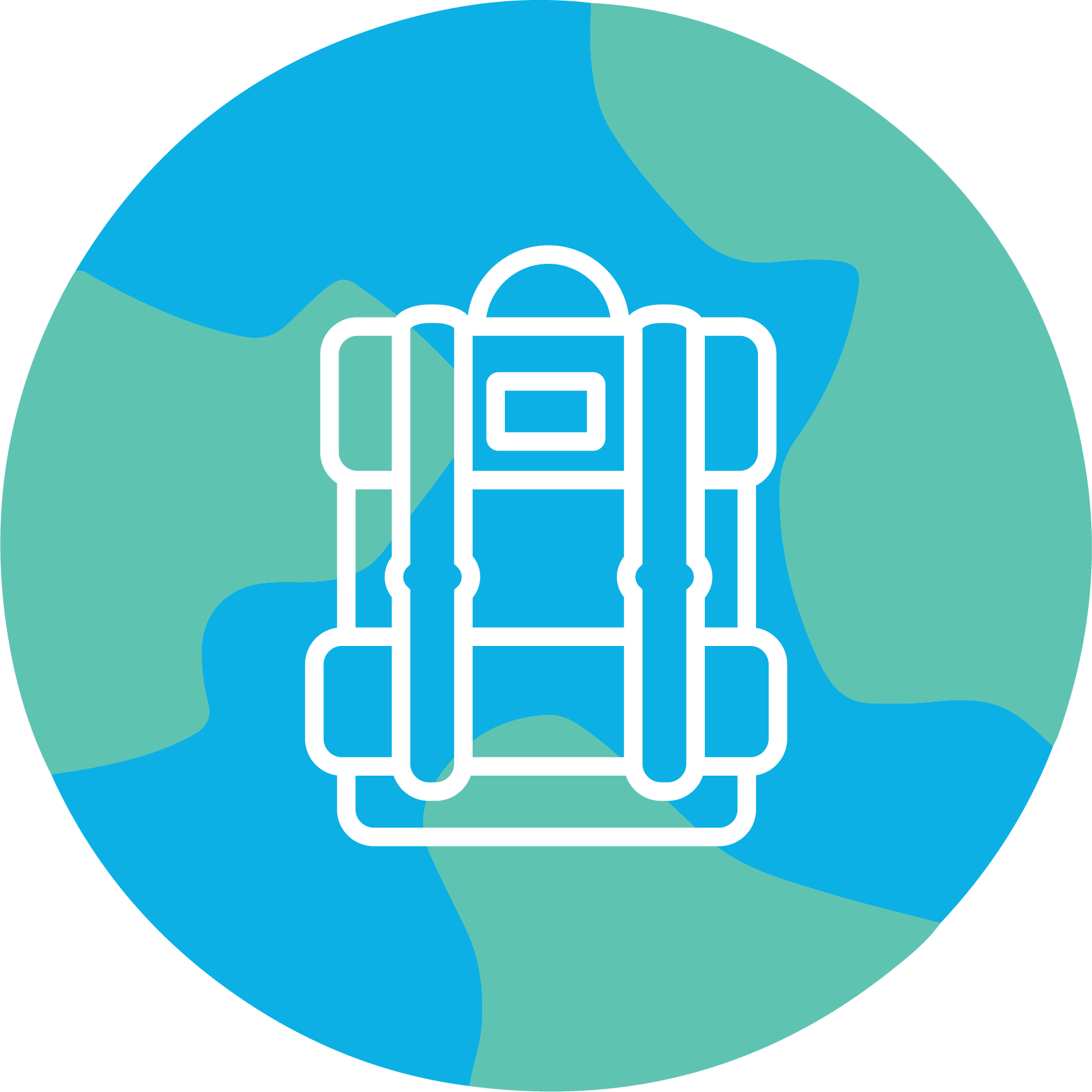Unraveling Cognitive Distortions - A Journey to Regulated Emotions and Self-Awareness

In a world teeming with thoughts and emotions, our mind often leads us down intricate pathways that can either propel us towards success or ensnare us in a web of negativity.
"Now unfortunately we can get stuck in the web of negativity which is intertwined with cognitive distortions we alone have created for ourselves..."
But fear not! For in this captivating expedition, we delve into the captivating realm of cognitive distortions, exploring their profound impacts on our emotional regulation and self-awareness.
Prepare your lunch box and pull up your socks to embark on a journey of enlightenment, as we unravel the complexities of the mind and reveal how the power of understanding cognitive distortions can set you on a course to self-mastery.
"Sound like a good time to me"

The Dance of Cognitive Distortions
Imagine your mind as a grand ballroom where thoughts waltz and emotions tango. Amidst this splendid dance, cognitive distortions play the role of mischievous choreographers, subtly altering the steps of the dance and distorting the graceful flow.
These distortions are patterns of thinking that often twist reality, leading to irrational conclusions and negative emotions.

15 Main Cognitive Distortions
So what are the main distortions you might be asking?
Well here are a few of the main distortions that have packed more of a punch then that tequila you had on your 21st birthday..
- All-or-Nothing Thinking (Black and White Thinking): Seeing things in extreme terms, without recognising any middle ground or shades of gray.
- Overgeneralisation: Drawing broad conclusions based on a single event or a few isolated incidents.
- Catastrophising: Blowing things out of proportion and imagining the worst-case scenarios.
- Personalisation: Believing that everything others do or say is a direct reaction to you, even when it's not the case.
- Mind Reading: Assuming you know what others are thinking or feeling without any concrete evidence.
- Fortune Telling: Predicting the future negatively without considering other possible outcomes.
- Emotional Reasoning: Believing that because you feel a certain way, it must be true, without considering other evidence.
- Should Statements: Using "should," "must," or "ought to" statements that impose unrealistic expectations on yourself or others.
- Labelling and Mislabeling: Applying overly negative labels to yourself or others based on mistakes or shortcomings.
- Discounting the Positive: Dismissing or minimising positive experiences or accomplishments as if they don't matter.
- Magnification and Minimisation: Exaggerating the importance of negative events and minimising the significance of positive ones.
- Jumping to Conclusions: Making negative assumptions about a situation without sufficient evidence. This can include mind reading and fortune telling.
- Comparing: Measuring your worth based on how you perceive you stack up against others, leading to feelings of inadequacy.
- Blaming: Holding others solely responsible for your negative experiences, without acknowledging your own role or external factors.
- Selective Abstraction: Focusing only on certain details of a situation, usually the negative ones, while ignoring the broader context.
Yep, it may be a bit to unpack but the great news is, now that you can identify these gremlins, you will be able to respond effectively vs react and feel like you're stuck in a burning house.

The Ripple Effect of Cognitive Distortions
Now, let's dive into the real meat of the matter – the tangible impacts of cognitive distortions on our lives. To fully grasp the significance, let's reference a groundbreaking study conducted by Smith and Johnson in 2020, which examined the correlation between cognitive distortion awareness and emotional regulation.
The study observed two groups:
one that underwent cognitive distortion awareness training and another that did not.
The results were striking. The group exposed to the training exhibited significant improvements in emotional regulation.
Their ability to navigate challenging situations with a calm and composed demeanour skyrocketed, all thanks to their newfound awareness of cognitive distortions. But what does this mean for you?
Picture a life where your emotional responses are no longer hijacked by irrational thoughts.
Instead, armed with the knowledge of cognitive distortions, you become the conductor of your emotional orchestra, harmonising the strings of your feelings.
"Sounds like a good time if you ask me!"
The Marvellous Symphony of Self-Awareness:
Cognitive distortions are not merely the villains of our mental landscape; they also serve as beacons guiding us towards self-awareness.
Think of them as signposts on the journey to understanding yourself better.
Consider the analogy of a labyrinth – each cognitive distortion is a turn in the maze, and by recognising these twists, you navigate towards the heart of your being. The more adept you become at identifying and challenging these distortions, the closer you come to the centre of self-awareness.

Breaking the Chains:
So What Holds Us Back?
As we stand at the crossroads of this exploration, it's vital to address the shackles that hinder many from taking control of their cognitive performance. The key culprit? Resistance to change.
Change, though often feared and resisted, is the catalyst for growth.
Embracing the notion of change not only unlocks the door to cognitive distortion awareness but also paves the way for self-regulation and emotional harmony.
The familiar path may seem comforting, but it's the road less traveled—the path of challenging cognitive distortions—that leads to empowerment and mastery.
Imagine a life where mind reading takes a back seat to authentic communication, where catastrophic castles crumble, replaced by resilient fortresses of rationality, and where filtering is replaced by a panoramic view of reality.
This life is not a distant dream—it's within your grasp, waiting to be seized.

Breaking Down Cognitive Distortions
Overcoming cognitive distortions involves developing awareness of these distortions and learning to challenge and reframe them with more balanced and realistic thinking. Here are some tools and strategies that can help:
- Mindfulness: Practicing mindfulness helps you become more aware of your thoughts and feelings without judgment. This awareness can help you identify cognitive distortions as they arise.
- Cognitive Behavioural Therapy (CBT): CBT is a therapeutic approach that focuses on identifying and changing negative thought patterns. A therapist can guide you through exercises to challenge cognitive distortions and replace them with more rational thoughts.
- Cognitive Restructuring: This technique involves actively challenging and replacing distorted thoughts with more accurate and balanced ones. You can do this by examining the evidence for and against your negative thoughts.
- Journaling: Writing down your thoughts and feelings can help you identify patterns of cognitive distortions. Challenge these distortions by writing down more balanced, realistic, and evidence-based thoughts.
- Reality Testing: When you catch yourself engaging in cognitive distortions, ask yourself for evidence to support your thoughts. Are there alternative explanations for the situation?
- Positive Affirmations: Counteract negative self-talk by repeating positive affirmations that are based on evidence and reality.
- Seeking Feedback: When you're unsure about your assumptions, seek feedback from others to gain a more accurate perspective.
- Self-Compassion: Treat yourself with the same kindness and understanding you'd offer to a friend. Don't be overly critical of yourself for having distorted thoughts; instead, work on changing them.
- Gratitude Practice: Regularly acknowledging and focusing on positive aspects of your life can help counteract the tendency to magnify negatives.
- Problem-Solving: For distortions related to potential problems, focus on finding practical solutions rather than dwelling on worst-case scenarios.
- Visualisation: Imagine a situation going well or challenging negative thoughts by imagining a compassionate friend helping you reframe them.
- Distraction: Engage in activities that shift your focus away from negative thoughts, giving you time to gain perspective.
- Professional Help: If cognitive distortions are significantly affecting your well-being, consider seeking help from a therapist or counsellor experienced in cognitive behavioural techniques.
Conclusion As the curtain draws on this exploration, remember the study's profound revelations – cognitive distortion awareness is the catalyst for emotional regulation and self-awareness. Armed with this knowledge, you possess the power to sculpt your emotional landscape, conducting symphonies of self-awareness that resonate with the harmony of a life well-lived.
In Short, here is a recap
1. What are cognitive distortions?
Cognitive distortions are patterns of thinking that twist reality and lead to irrational conclusions and negative emotions.
2. How do cognitive distortions affect emotional regulation?
Cognitive distortions can hinder emotional regulation, leading to heightened anxiety and discomfort.
3. Can cognitive distortions be overcome?
Yes, with awareness and practice, cognitive distortions can be identified and challenged, leading to improved emotional well-being.
4. How does understanding cognitive distortions lead to self-awareness?
Recognising and addressing cognitive distortions helps individuals navigate their thoughts and emotions, leading to a deeper understanding of themselves.
5. Why is embracing change important in managing cognitive distortions?
Embracing change allows individuals to break free from the limitations imposed by cognitive distortions, leading to personal growth and emotional harmony.

Chris Walker - Founder Of TravelFit
Chris is a Certified Personal Trainer, Strength and Conditioning Coach, Sports Nutrition Advisor, Breathing Performance Coach, Cognitive Behavioural Therapist Coach, Over 10 years experience in the health and fitness industry, while also running his own businesses since 2014 allowing him to implement and practice tools that allowed him to thrive in life.
In the past Chris experienced first hand on how to overcome his own severe anxiety and depression through changing lifestyle habits and behaviours through holistic health.
Disclaimer: The information provided in this article is for educational purposes only and should not substitute professional medical advice. It is important to consult with a healthcare professional for personalised guidance and treatment regarding any sleep, hormonal, or health-related concerns.










Leave a comment